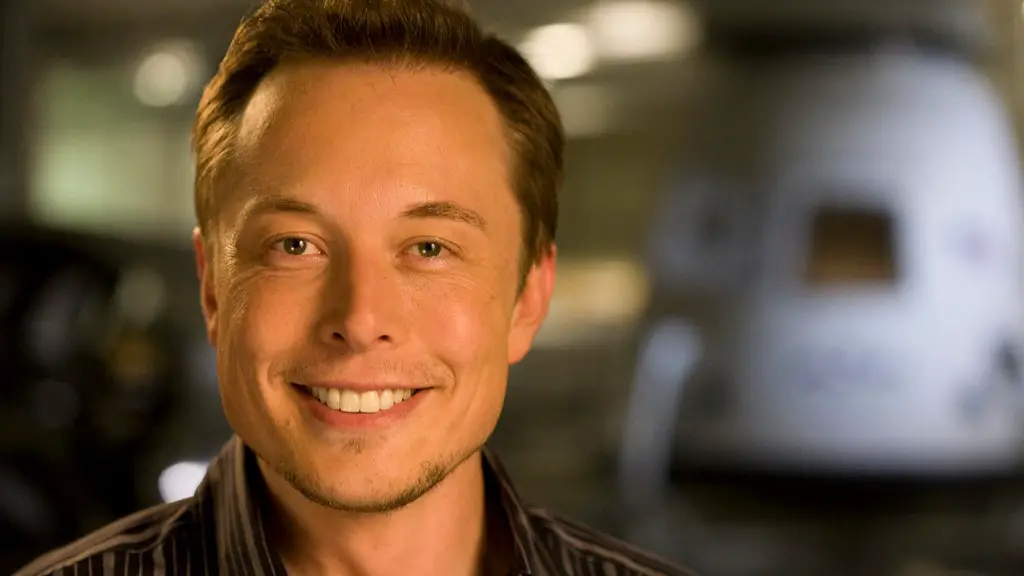How Did Mark Zuckerberg Create Facebook
In 2004, a 19-year-old Harvard undergrad named Mark Zuckerberg changed the world forever by launching a website that would revolutionize social networking. Facebook was born and gave people a way to connect with each other on an unprecedented level. Fifteen years later Facebook is an essential part of many people’s lives and boasts a user base of over two billion people. But how did Zuckerberg realize this dream?
Zuckerberg had a passion for coding and computers ever since he was a child, often indulging in hours of programming in his parent’s basement and teaching himself HTML. As he grew older he became more ambitious with his projects and dreamed of making something that would have a large and genuine impact in the world. He soon attended Harvard university and got the chance to realize this dream.
At Harvard, Zuckerberg created and launched several websites. His initial success came in the form of ‘Facemash’, a program that ranked students based on their pictures. This site enjoyed a lot of popularity, but not the kind that Zuckerberg wanted; it was taken down by the administration due to its controversial content. From this experience, Mark learned how powerful viral content could be, and how people were drawn towards it.
Armed with this knowledge, he, along with his friends there, Dustin Moskovitz, Eduardo Saverin and Chris Hughes began to plan out something huge and life-altering. In late 2003, they began hashing out the concept of something called, ‘The Facebook’. This would be an online platform connecting the different campuses across the world, the main feature being the photo sharing. It would even have the tagline ‘A social utility that connects you with the people around you’.
In order to realize this vision, Zuckerberg and his partners sought coders to help develop the platform. Twins Cameron and Tyler Winklevoss, alongside Divya Narendra, initially approached Zuckerberg to code a website for their already existing social networking site, IvyConnect. However, Zuckerberg delayed the progress of this project as he focused on his own idea, something that soon blossomed into the Facebook we know today.
On the 4th of February, 2004, The Facebook was launched at Harvard. It was an immediate sensation and slowly began to spread to other campuses through word-of-mouth and email forwarding. Due to its success, Zuckerberg and team decided to expand The Facebook to other schools as well. After brief stints of immense success at Columbia, Stanford and Yale, The Facebook was rocked by its first major lawsuit; the Winklevosses and Divya Narendra accused Zuckerberg of stealing their plans and suing him for $65 million.
In spite of this setback, The Facebook’s growth remained unhindered as it slowly but steadily expanded to include over 800 universities and millennial everywhere were trying to access the website. This growth was followed by a big-time investment from Peter Thiel, who became one of the few people Zuckerberg trusted and in 2005, the site was rebranded and gave us the Facebook we know and love today.
Securing the Funds
The late 2000s saw an acceleration in user growth, with a massive movement of people towards the platform. This meant that Zuckerberg and team needed to secure enough funds to pay for infrastructure costs and make sure the experience stayed up to standard. This they managed to achieve through investments made by various venture capitalists and businessmen, who all had faith in the potential of Facebook.
Much of the initial capital came from Thiel, who empathized with the vision of the platform. After him, big names like Sean Parker, Steve Chen, Reid Hoffman and Jim Breyer made a string of investments that pushed the platform to even greater heights. With the influx of money, Facebook expanded its userbase to nearby countries and even reportedly refused a $1 billion buyout from Yahoo!
These investors all prove to be pivotal for the success of the website and SpaceX’s former CTO and now COO, Bret Taylor, was even appointed as the first CTO of Facebook. Not only did Taylor bring with him investors, he also brought in the layer of structure which Zuckerberg so desperately needed to make Facebook grow.
Growth of Facebook
By 2009, the platform had 300 million users, making it one of the largest social networks in existence. This growth of Facebook was then solidified through the introduction of ‘Likes’ and spread even further through the ‘Groups’ and ‘Pages’ feature aimed at larger communities, increasing both user engagement and further investments.
This was followed by the launch of Facebook Insights and other various tweaks, including countless international expansions and user growth from 1.28 billion in 2012 to 2.26 billion in 2018, thus turning The Facebook into a global sensation.
Moderation of Facebook
Zuckerberg and Facebook have since come under fire for their policies and the risks of ‘fake news,’ which has casted a negative light on the platform. To counter this, Facebook has since taken massive steps towards moderating its platform, including hiring over 20,000 content moderators, limiting ad distribution and taking steps towards clearer labeling of ‘fact-checked’ news stories.
This move, while criticized by some, has led to a decrease in ‘fake news’ spread across the site and brought some much needed peace of mind to those who had their doubts in the platform. It also brought more recognition and respect to Zuckerberg, who, despite all his success, remains a down-to-earth, focused entrepreneur and innovator.
Criticism of Zuckerberg
Despite Facebook’s success, there have been some criticisms of Zuckerberg’s leadership and handling of the website. This includes the company’s policy of allowing comments from anyone regardless of their tone and wording, which some say has allowed a culture of rampant abuse and hate speech.
Others have criticized Facebook for not doing enough to prevent the manipulation it’s platform, since it’s prone to massive privacy concerns and is vulnerable to malicious individuals who often use Facebook to spread misinformation. This has sparked intense debates about the efficacy of the platform in producing genuine content and the kind of regulation it needs to combat such issues.
Enduring Legacy of Zuckerberg
Despite the occasional hangups and controversies surrounding the site, one cannot doubt the impact and enduring legacy of Zuckerberg and Facebook. It is thanks to the vision of this Harvard undergrad that people all around the world can now connect, communicate and share their lives with others. And while Zuckerberg remains in charge of the company, it’s expected to remain as one of the top social networks.
Not only is Zuckerberg’s impact seen in the world today, he has also become a role model for countless entrepreneurs and innovators who look to him to follow in his footsteps. His story has become the benchmark for success for many and the proof that, with hard work and dedication, anything is possible.
Investing in Innovation
Since becoming the poster-boy of tech, Zuckerberg has used his wealth and resources to create something far more meaningful than a platform just for social networking. In the following years, Zuckerberg announced investments in various projects, including the development of artificial intelligence, the invention of virtual reality headsets, and the funding of medical research projects.
These investments, similar to the funding of Facebook initially, showcase Zuckerberg’s passion for technology, but also for a better world. These philanthropic efforts, funded through the Chan/Zuckerberg Initiative, a private foundation, saw Mark pour in almost $50 billion of his wealth to these projects.
The idea behind these investments is to make a positive contribution to humanity, by enabling those working in different fields of technology to do what they do best and create something of value. This demonstrates how far Mark has come in his career, from a college student with an ambitious vision, to a well-respected leader in the world of technology.
Conclusion of Facebook
Fifteen years on and after countless changes, scandals and innovations, Facebook continues to be relevant and is building towards even more possibilities. None of this would have been possible without the hard work and vision of Mark Zuckerberg and will surely remain as a lasting testament to his creativity and foresight. In the end, it’s undoubtedly a great success story and we’re all fortunate to be witness to it.



